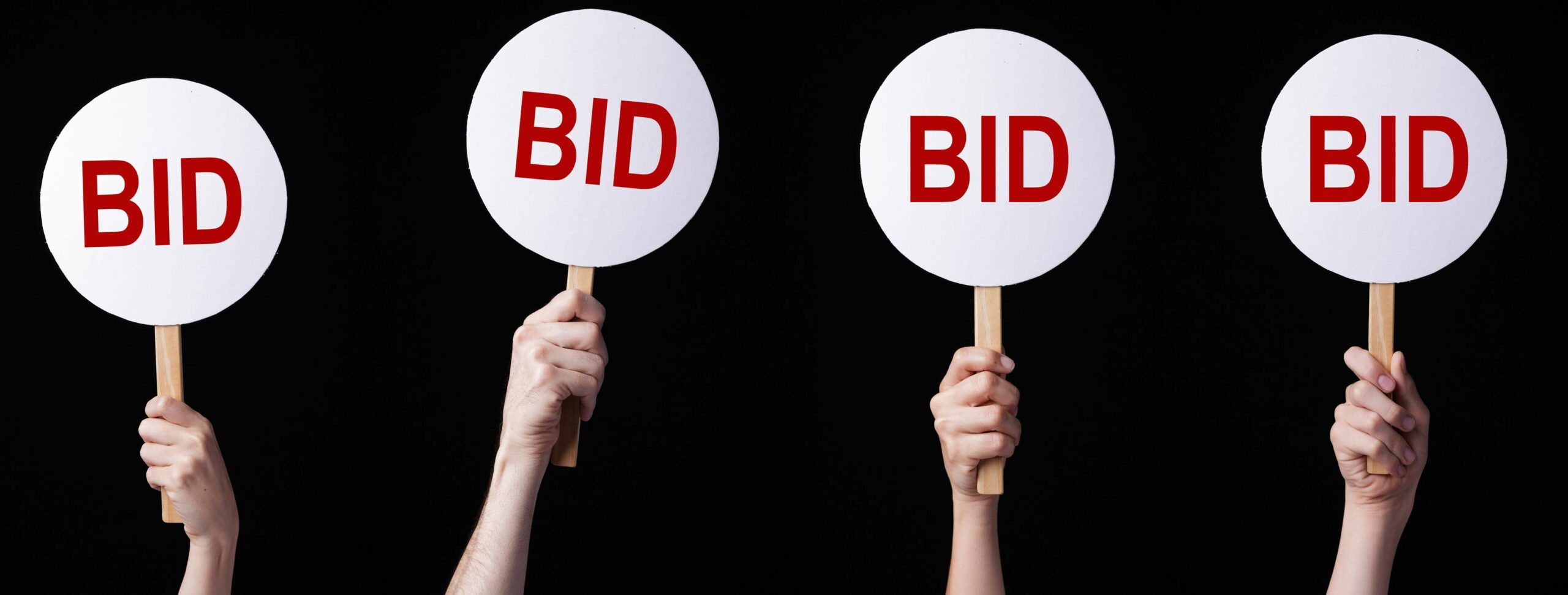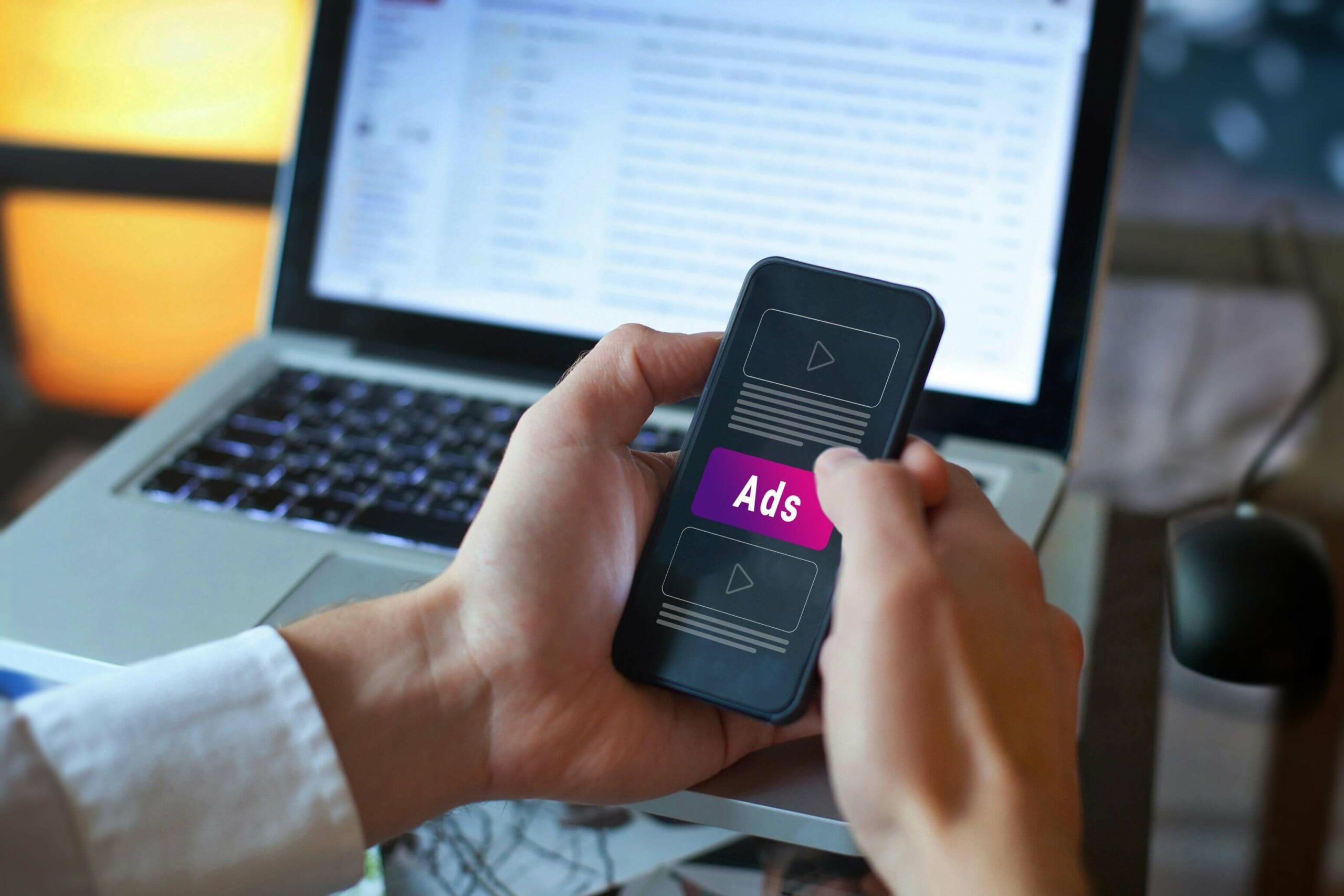What if you could drive instant website traffic and sales at the exact moment someone shows interest in your business? Sounds incredible, right? Well, that superpower exists through pay-per-click advertising. This puts your ads in front of high-intent searchers—then you simply pay each time someone clicks.
Talk about precision marketing! PPC puts conversions and profits immediately within your reach for a modest investment. Forget waiting months for organic rankings.
In this definitive guide, we’ll explore why PPC should be central to your digital strategy and how to extract maximum value through best practices. Ready to take your online visibility and revenue to stratospheric new heights? Then, let’s dive right in!
What Is PPC Advertising?
Pay-per-click (PPC) advertising refers to the paid search listings you often see at the top and right side of search engine results pages when you conduct a query. These sponsored text, image, and video ads stand out from regular organic results through eye-catching placements and backgrounds aimed to capture your attention as a searcher.

With PPC campaigns, advertisers like you pay the search engine each time someone clicks on your ad. The 'pay-per-click' billing model means you only incur costs when a user interacts with your ad that gets sent to your external landing page. The price you pay per click depends on the competitiveness of the keywords within your industry and how aggressive your bidding strategy is.
What's The Difference Between PPC And SEO?
PPC and SEO may seem similar since they both aim to increase website visibility and traffic. However, the key difference lies in how you achieve those results.
With SEO, you optimize pages to rank organically in search engines. This involves strategies like PPC keyword research, site architecture adjustments, backlink building, and content creation. It takes time for sites to climb in rankings, which is why SEO is better suited for long-term growth.
On the other hand, PPC delivers instant traffic. You create keyword-targeted ads then bid for top placements and only pay when searchers engage. Instead of competing for rankings, you guarantee visibility by outbidding competitors. That’s why PPC and SEO complement each other extremely well.
How Does PPC Work?
PPC utilizes an auction-style advertising system where you bid on the right keywords relevant to your business. When someone searches a term you are bidding on, your ads can appear prominently above or alongside the organic search results.
You set a maximum cost-per-click (CPC) bid to signal what you are willing to pay for a click. If your bid tops competitors, your PPC ad earns the top placement. The higher position and relevance leads to more impressions and clicks to your site.
Essential Components of PPC Ads
Well-optimized PPC campaigns include these core elements:
Campaign Budget
When setting up a PPC campaign, you need to establish a daily or monthly budget aligned with your business goals, available resources, and potential return on ad spend (ROAS). Carefully calculate a budget range based on expected click volume, typical cost-per-clicks in your industry, current conversion rates, and the average order value or profit margin per sale.

Constraints prevent overspending while still capturing web traffic and sales. Regularly revisit your budget as you gather performance data and tweak campaign elements like keywords, match types, ad copy, and landing pages.
Cost
With PPC advertising, you pay only when people click your ads, unlike other models charging for impressions. The cost per click (CPC) varies based on several factors. Keyword competition plays a major role. Bidding on trademarks or branded terms in your industry will be more expensive.
The match type also impacts CPC. A broad match casts a wider net to drive more traffic but lowers relevancy. Exact and phrase match cost more yet convert better.
The higher your ads rank, the more visible they become, leading to higher CPC costs.
Campaign Structure
When establishing a PPC campaign, you should divide ad groups logically to allow for more customized targeting settings. For example, you may have an ad group targeting keywords related to your product benefits, another around keywords focused on product features, one targeting competitors, etc.
Keeping ad groups smaller and more focused makes it easier to craft targeted ad copy and landing pages. It also enables you to set specific bids and budgets based on the metrics and conversion potential you see. Regularly review search terms and performance by ad group to identify opportunities to consolidate or subdivide groups further.
Keywords
Keywords act as the foundation of your PPC campaigns since they trigger when your ads appear. Dedicate sufficient time to build out keyword lists that cover both short and long-tail variations related to your offerings.
Also, ensure an effective mix of generic product terms and branded keywords for capturing awareness and comparison shoppers. Analyze search analytics and keyword planner tools to identify monthly volumes, cost per click data, and level of competitiveness across potential terms.
Bidding Strategies
Your bidding strategy impacts the volume and quality of traffic driven by your PPC ads while controlling costs. With manual bidding, you set maximum CPC bids for ad groups or individual keywords based on factors like competition levels.

Automated options use machine learning to optimize bids toward objectives like maximizing conversions (target cost per acquisition or CPA) or ROI (target ROAS). Other smart bidding types include enhanced CPC, which raises bids slightly within your limit to gain top page placement, or target impression share to achieve more visibility.
Why Pay Per Click Is Important?
Here’s why PPC should be an integral piece of your overall marketing approach:
PPC Ads Promotes Effective Targeting
One of the greatest advantages of PPC advertising campaigns is the ability to precisely target your ads to reach your best potential customers. You can target ads contextually to show up based on search queries containing your keywords. For example, bidding on 'comfortable walking shoes' displays your shoe store's ads to searchers wantinvidg that exact product.
You can layer on advanced targeting parameters. Geo-targeting shows your ads mainly to people in desired zip codes or cities. For a local pizza shop, you may geo-target people searching near your delivery zones.
PPC Ads Drive Fast Results
One of the biggest perks of PPC advertising is the ability to drive traffic and conversions quickly. As soon as your ads and landing pages are ready, you can launch campaigns and see an immediate boost in website visitors and phone calls.
If you run a special holiday promotion, PPC allows you to get it in front of searchers right away, accelerating sales. No need to wait for pages to rank organically first. The instant results also enable swift testing. You can experiment with elements like bidding strategies, ad copy, landing pages, and negative keywords and rapidly see how changes impact conversions and costs.
PPC Ads Are Cost-Effective
Unlike some traditional advertising mediums, PPC lets you maximize value from your ad budget. You only pay for actual clicks rather than exposure. Control costs by setting daily and monthly spending caps aligned with potential sales revenue or profit margin. If you sell products averaging USD$100 each and aim for a 50% margin, only activated campaigns are likely to return an ROAS exceeding 2X.
Outperforming that threshold grows your gains. If you find click costs exceeding revenue potential per visitor, simply adjust bids, keywords, or targeting approaches accordingly to maintain profitability.
PPC Ads Work Well with Other Marketing Channels
An impactful digital marketing strategy combines PPC with other channels like social media and email for amplified success. Install tracking pixels from platforms like Facebook or Google Ads into your website. Then, you can create custom audiences or remarketing lists of visitors who engage with your PPC ads.
Next, generate tailored ads, posts, or email nurture sequences to re-engage them. This coordinated approach increases overall conversion rates exponentially higher through consistent brand awareness and visibility.
PPC Ads Complement Well With SEO
Rather than taking an either/or approach, savvy marketers blend PPC and SEO to extract the unique upsides of both. Use PPC to generate an immediate surge of traffic and sales conversions while you focus on long-term SEO rankings. Load targeted keywords and their close variations into paid ad groups.
As your SEO marketing efforts lift organic rankings for those terms, you’ll notice your PPC click-through rates and Quality Scores rise too, thanks to greater perceived authority and relevance. This leads to lower cost-per-click and higher profits over time.
PPC Advertising Best Practices: Tips for Better Results
Apply these proven tips to enhance PPC effectiveness:
Set Up Negative Keywords
Adding negative keywords to your PPC campaigns reduces wasted spend from irrelevant clicks. For example, if you run a shoe store, browsing terms like 'shoe repair' indicates no buying intent. Bidding on broad matches could accidentally trigger your ad for searches containing 'repair.' Applying negative keywords blocks your ads from showing for search queries with useless or unrelated words.
Check search term reports to discover terms not converting, then add their root keywords as negatives. This refines your PPC strategy to only show ads for commercially viable search themes aligned with your offerings. The higher the relevancy and conversion rates, the lower the cost-per-click over time.
Try Different Bidding Strategies
Experiment with manual CPC and automated bidding options like target CPA and maximize conversions to determine optimal returns. For example, try manual bidding for branded keywords where you know the precise value of each click.
Evaluate reports after a couple of weeks per strategy. If the target CPA delivers conversions below your goals efficiently, roll that out more widely.
Optimize Your Ad Copy
Compelling PPC ad copy entices searchers to click and convert once landing on your site. Refresh messaging frequently A/B testing nuances. Try an urgent call-to-action like 'Get 20% Off Your Order' or an emotional appeal like 'Find The Perfect Gift.'
Also, ensure critical keywords naturally appear in titles and descriptions since relevance boosts click-through rates. For an outdoor equipment seller, ad text reading 'Need Quality Camping Gear Fast? Shop Thousands Of Items' performs better than overly salesy ads.
Nail copywriting basics as well: concise sentences, focused benefit-driven language, contractions for readability, transitions between descriptive lines, and clear calls-to-action.
Use Ad Assets
Leverage ad extensions and other creative assets to capture more real estate on SERPs. Options like call, location, app, video, and image extensions boost relevance by offering more context. Dynamic formats like responsive display ads auto-optimize to a searcher’s screen size, while expanded text ads stretch across wider desktop layouts.

Also, avoid cluttering - prioritize 1-2 highly relevant, visually engaging extensions over flooding SERPs with too many distracting assets.
Try Ad Scheduling
Align your PPC budget to key periods when more high-intent searchers are actively browsing for your offerings. For example, if you sell gifts, schedule higher bids during holiday weekends when search volume spikes. Or for a tax prep service, focus budgets leading up to annual filing deadlines when people urgently seek help.
You can even refine further with dayparting to capture prime evening and weekend pockets based on industry patterns. For instance, bid higher on Fridays and Saturdays for a restaurant to attract families making weekend plans.
Continuously check analytics reports to identify weekly and daily traffic variances for your keywords and industry. And match your ads to moments of maximum buyer readiness.
Final Thoughts
As this definitive guide demonstrates, pay-per-click advertising delivers unparalleled flexibility to reach motivated searchers during their buying journeys. After launching your first campaign, continue refining elements like match types, ad copy, and landing pages through rigorous split testing.
Monitor analytics to double down on what works and eliminate what doesn’t. Soon, you’ll possess a revenue-driving machine finely calibrated to your business goals.
